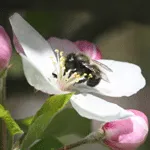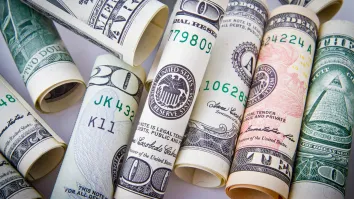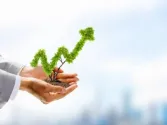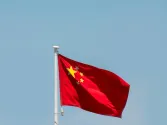Published:

Mauboussin: What biology can teach you about today's market
Michael Mauboussin, Chief Investment Strategist at Legg Mason Capital Management interviews Doug Erwin, a highly respected paleobiologist at the Smithsonian and a member of the Santa Fe Institute’s resident faculty on the parallels between the biological world and the current market.
The extraordinary recent market activity and associated discussion prompted me to pose the same questions many are now asking:
– What is the role of free markets?
– Can overseers structure regulation so as to encourage progress while discouraging poor behavior?
– How can we achieve greater stability, provided that is a worthy goal?
Like others, I have opinions on these issues. But as these questions rolled in my mind, it occurred to me that we have a similar system — nature — that has been coping with the very same issues for roughly 3 billion years. That is probably sufficient time to allow for some insights.
One of the great aspects of an affiliation with the Santa Fe Institute (SFI) is the opportunity to exchange ideas with world class scientists who are self-selected to be curious about the world. Doug Erwin, a highly respected paleobiologist at the Smithsonian and a member of SFI’s resident faculty, is a great example. (Doug’s full biography is at the end of this interview.) While an expert in his field, Doug reads and thinks broadly and can intelligently discuss just about any topic you can think of.
So rather than share my views, I thought it would be useful to interview Doug. Note that I lured him into this discussion precisely because he is not a finance expert. That said, the parallels between the biological world he describes and the markets are vivid and provocative. I begin with a summary of our dialogue, then follow with the complete interview.
Summary of ideas:
– Parallels between reproductive and investment strategies. Doug mentions three reproductive strategies. The first two, the r-selected and the K-selected, are well known. The r-strategy — have lots of offspring and hope for the best — is similar to diversification. The K-strategy opts for fewer offspring but invests much more in each, comparable to constructing a concentrated portfolio. The third strategy, anti-z, was new to me. That strategy seeks to build reserves in good times to allow for better performance in bad times. This is akin to insurance or, in the extreme, strategies that take advantage of fat-tail events (e.g., deep out of the money put and call buying). But, as he mentions, since crises happen infrequently, most species are unable to adapt to the challenging conditions.
– Exogenous and endogenous shocks. Some extinctions are the result of exogenous shocks, like an asteroid hitting the earth. Markets have similar events like terrorist attacks or sharp changes in political regimes. But many extinction events arise from the inner workings of the system: pinpointing a specific cause is a challenge. Likewise, in markets most crises are endogenous, not exogenous. The lethal combination of human nature and leverage assure that excesses — both on the upside and downside — occur periodically. Managing the market requires taming human nature. It is unclear any organizational structure has fully succeeded in that task.
– You cannot manage a complex adaptive system. By definition, a complex adaptive system has many interconnections. While financiers and politicians seek to help the system, chances are extremely high that any move will have unintended consequences. Biologists have consistently failed to manage systems like national parks and wetlands where the network structure is, if anything, simpler than that of markets.
– Surviving the crisis is different than thriving post-crisis. Because ecosystems are rebuilt after a crisis, those species that survive the crisis may not do well after it. Likewise, following a financial and economic crisis the strategies that worked in a prior time may no longer be in favor. Crises close down old opportunities while creating new ones. Participants who can identify and exploit new niches stand to benefit.
The extraordinary recent market activity and associated discussion prompted me to pose the same questions many are now asking:
– What is the role of free markets?
– Can overseers structure regulation so as to encourage progress while discouraging poor behavior?
– How can we achieve greater stability, provided that is a worthy goal?
Like others, I have opinions on these issues. But as these questions rolled in my mind, it occurred to me that we have a similar system — nature — that has been coping with the very same issues for roughly 3 billion years. That is probably sufficient time to allow for some insights.
One of the great aspects of an affiliation with the Santa Fe Institute (SFI) is the opportunity to exchange ideas with world class scientists who are self-selected to be curious about the world. Doug Erwin, a highly respected paleobiologist at the Smithsonian and a member of SFI’s resident faculty, is a great example. (Doug’s full biography is at the end of this interview.) While an expert in his field, Doug reads and thinks broadly and can intelligently discuss just about any topic you can think of.
So rather than share my views, I thought it would be useful to interview Doug. Note that I lured him into this discussion precisely because he is not a finance expert. That said, the parallels between the biological world he describes and the markets are vivid and provocative. I begin with a summary of our dialogue, then follow with the complete interview.
Summary of ideas:
– Parallels between reproductive and investment strategies. Doug mentions three reproductive strategies. The first two, the r-selected and the K-selected, are well known. The r-strategy — have lots of offspring and hope for the best — is similar to diversification. The K-strategy opts for fewer offspring but invests much more in each, comparable to constructing a concentrated portfolio. The third strategy, anti-z, was new to me. That strategy seeks to build reserves in good times to allow for better performance in bad times. This is akin to insurance or, in the extreme, strategies that take advantage of fat-tail events (e.g., deep out of the money put and call buying). But, as he mentions, since crises happen infrequently, most species are unable to adapt to the challenging conditions.
– Exogenous and endogenous shocks. Some extinctions are the result of exogenous shocks, like an asteroid hitting the earth. Markets have similar events like terrorist attacks or sharp changes in political regimes. But many extinction events arise from the inner workings of the system: pinpointing a specific cause is a challenge. Likewise, in markets most crises are endogenous, not exogenous. The lethal combination of human nature and leverage assure that excesses — both on the upside and downside — occur periodically. Managing the market requires taming human nature. It is unclear any organizational structure has fully succeeded in that task.
– You cannot manage a complex adaptive system. By definition, a complex adaptive system has many interconnections. While financiers and politicians seek to help the system, chances are extremely high that any move will have unintended consequences. Biologists have consistently failed to manage systems like national parks and wetlands where the network structure is, if anything, simpler than that of markets.
– Surviving the crisis is different than thriving post-crisis. Because ecosystems are rebuilt after a crisis, those species that survive the crisis may not do well after it. Likewise, following a financial and economic crisis the strategies that worked in a prior time may no longer be in favor. Crises close down old opportunities while creating new ones. Participants who can identify and exploit new niches stand to benefit.














